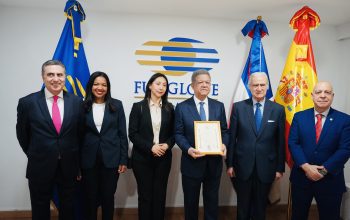news
The Ambassador of Kenya Confirms Attendance to GFDD’s and FUNGLODE’s Fifth Global Roundtable
June 6, 2011
On June 6, GFDD and FUNGLODE will be featuring the Permanent Representative of Kenya to the United Nations, H.E. Josephine Ojiambo’s at its Fifth Global Roundtable.
The Global Roundtable series is part of GFDD’s goal to organize regular meetings with UN Ambassadors and other prominent figures in the international community in an effort to spread news, knowledge and understanding of other countries, global issues and work of different
United Nations bodies to its audience in the Dominican Republic, the US and around the world. The regular meetings of GFDD’s Global Roundtable also form part of its mission to support and advance the United Nations agenda of work.
Since 2004, the Foundations have had consultative status with the Economic and Social Council, the Conference on Trade and Development, the Department of Public Information, The Global Compact Office, the Office on Drugs and Crime and
the World Summit on Information Society.
Ambassador Ojiambo serves as President of the High Level Committee on South South Cooperation, a Committee housed by a bureau at UNDP Headquarters in New York dedicated to capacity building and the exchange of best practices from the Global South. Her Excellency will be discussing Kenya’s advancement in relation to the UN Millennium Development Goals and other international development topics affecting the
country, such as: coalition government, economy, health, tourism, and trade.
About Kenya
Situated on the equator on Africa’s east coast, Kenya has often been described as "the cradle of humanity". In the Great Rift Valley paleontologists have discovered some of the earliest evidence of man’s ancestors.
In the present day, the Republic of Kenya’s ethnic
diversity has produced a vibrant culture but is also a source of conflict but it is currently at peace. The major languages are English and Swahili and the religion is predominantly Christian.
Following independence from Britain in 1963, politics was dominated by the charismatic Jomo Kenyatta. He was succeeded in 1978 by Daniel Arap Moi, who remained in power for 24 years. The ruling Kenya African National Union, Kanu, was the only legal political party for much of the
1980s.
Popular unrest – and international pressure – led to the restoration of multi-party politics in the early 1990s. But it was to be another decade before opposition candidate Mwai Kibaki ended nearly 40 years of Kanu rule with his landslide victory in 2002’s general election.
Despite President Kibaki’s pledge to tackle corruption, some donors estimated that up to $1bn had been lost to graft between 2002 and 2005.
Other pressing challenges include high unemployment, crime and poverty; most Kenyans live below the poverty level of $1 a day. Droughts frequently put millions of people at risk.
Kenya has been a leading light in the Somali and Sudanese peace processes.
With its scenic beauty and abundant wildlife, Kenya is one of Africa’s major safari destinations. The lucrative tourist industry has bounced back following the slump that followed bomb
attacks in Nairobi in 1998 and Mombasa in 2002. And in 2006 tourism was the country’s best hard currency earner, ahead of horticulture and tea.
Membership of international groupings/organisations: UN, Commonwealth, African Union, WTO, East African Community (EAC), Inter-Governmental Authority on Development (IGAD), Common Market for Eastern and Southern Africa (COMESA).






